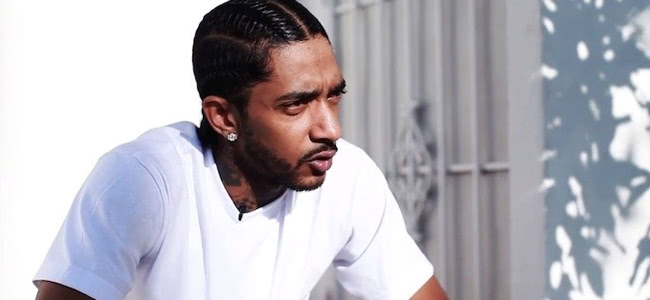How much would you pay for an album? Just asking the question is a 21st Century luxury, because it’s only been fairly recently that we had a choice. Whereas once upon a time consumers would save their pennies to go and purchase an album on wax or CD for a non-negotionable price, consumers have never had so many options as they do now.
If you still like to get your music in physical form, you can pay for CDs, or vinyl, if you’re into that sort of thing. There’s also digital distribution platforms like Bandcamp and iTunes, if you’re willing to fork out the dough, and there’s always streaming services and options like SoundCloud, if you don’t.
Of course, there’s also peer-to-peer file-sharing, but you would never do something like that, would you? Still, the question remains: how much would you for an album? $10? $20? Somewhere between that seems fair, right? That should keep the artist or band in good stead. What about $1,000?
That’s precisely how much Los Angeles rapper Nipsey Hussle is asking for. The Crenshaw native has put his new album, Mailbox Money, online for free, but if you’re after a physical copy, of which only 100 have been made, you’ll need to hand over a cool thousand bucks.
You won’t be alone. As The Guardian reports, dozens of people have already bought the physical copy of Mailbox Money at $1,000 a pop. Speaking to The Guardian just a week after releasing the album, he’s sold 60 copies. Yes, just one week after releasing his album, Nipsey Hussle has made $60,000 and none of it is going to a label.
[include_post id=”428500″]
“It surprises me,” he tells The Guardian. “As much as I believe in it. Every time I get a transaction, I get a text on my phone, and I’ve been hitting them back. The feedback and the connection I have with these people help me understand the psychology of the person paying $1,000 for some songs that, realistically, you could download for free.”
While $100,000 would be considered a good living by almost anyone, it’s a far cry from the million dollar paydays that most rappers boast about. But this is not Nipsey Hussle’s primary concern. “The highest human act is to inspire,” he says. “Money is a tool – it’s the means, not the end.”
“[Inspiration is] the metric that dictates whether or not a project is a success. It’s more realistic than trying to aim for radio play, or trying to satisfy an A&R, or the other gatekeepers on these platforms,” the rapper adds. “I don’t even know how to create with those things in mind. But if you tell me the goal is to inspire? That makes my job a lot easier.”
Besides a copy of the album and personal correspondence from the rapper himself, the album comes with a secret package, whose contents Hussle won’t reveal, as well as an invitation to a private listening session for his next album, and it just so happens that he’s one of the most acclaimed rappers in the game.
[include_post id=”423416”]
Most interestingly, Hussle’s tried the same sales method before. In 2013, he released just 1,000 copies of his album Crenshaw at $100 a pop. The run quickly sold out, with Jay-Z personally purchasing 100 copies. However, he says he has no plans to keep going up and up, i.e. releasing just 10 albums as $10,000 each.
As he explains, the novel distribution method grew out of his frustrations with major labels. “The labels aren’t letting us live,” he says. “They’re not letting artists own anything! We’re going to end up 60 years old without a pot to piss in – no catalogue, no mailbox money, no residuals.”
“We’re supposed to be in control. We’re supposed to own this shit. Unless you don’t have the mental capacity to do so, but that doesn’t apply to me,” he adds. Of course, the danger with Hussle’s strategy is keeping the focus on the sales strategy and not the music, but he’s not particularly concerned about this.
“I’m not worried. People buy into ideas. ‘Think Different’ is more iconic than any Apple product you buy, and Just Do It is more iconic than any shoe,” he says. “The reason it doesn’t bother me is that I know musically where I’m going, and I know about the quality of music that I’ll be making next.”
As Digital Music News notes, while other musicians will likely eschew Hussle’s ballsy tactics, the new musical economy will look similar to this, with platforms like Patreon, Kickstarter, PledgeMusic, and BandCamp reigning supreme as artists learn to live their dreams on the bankroll of a small but dedicated fan base.




































